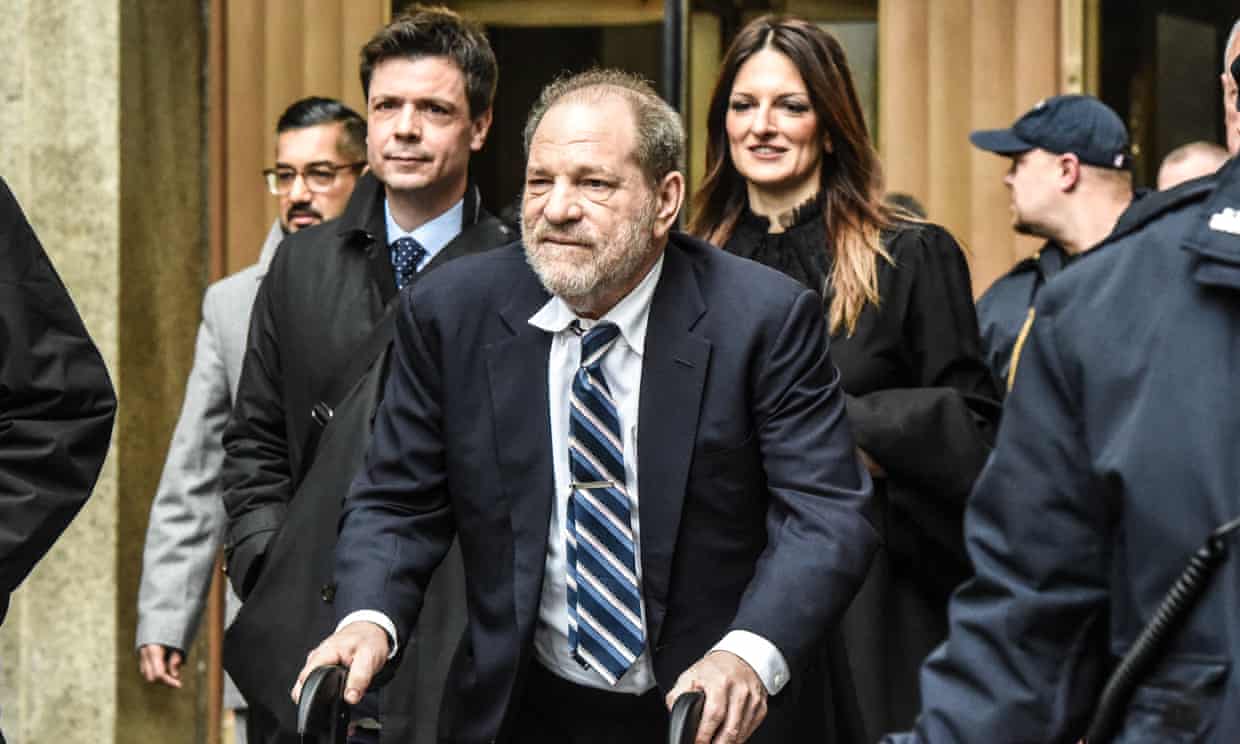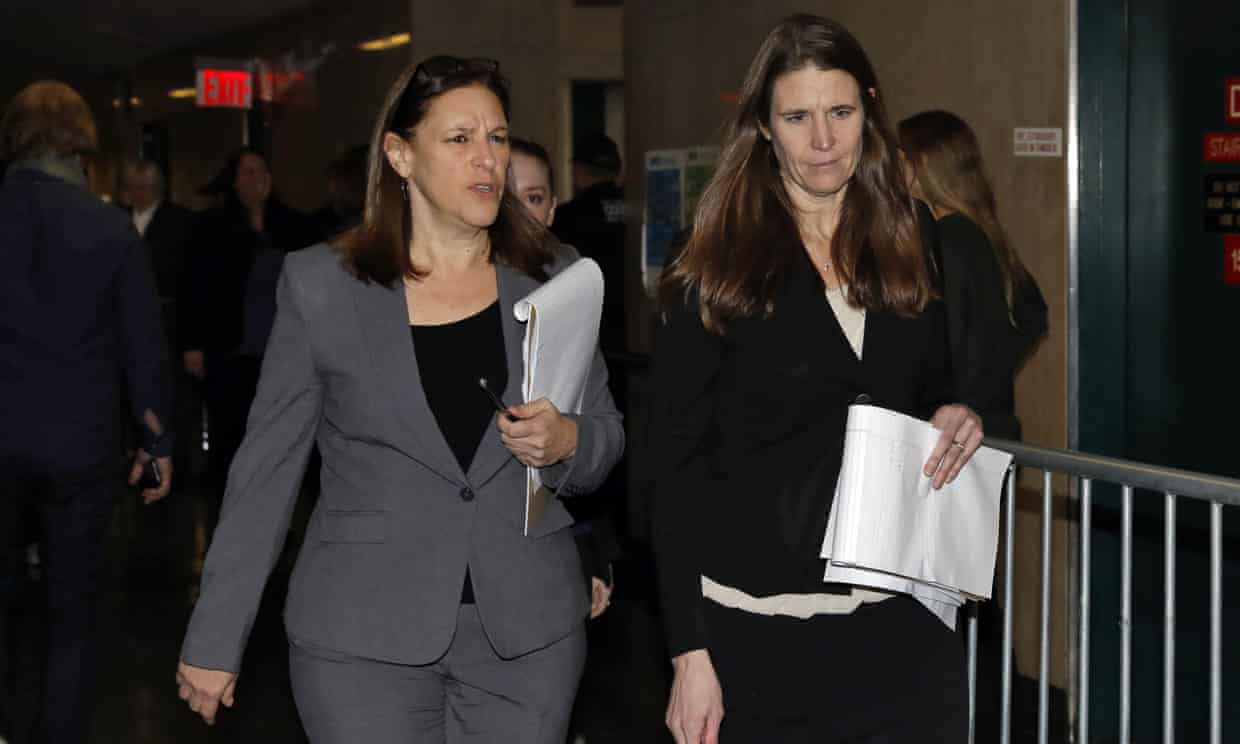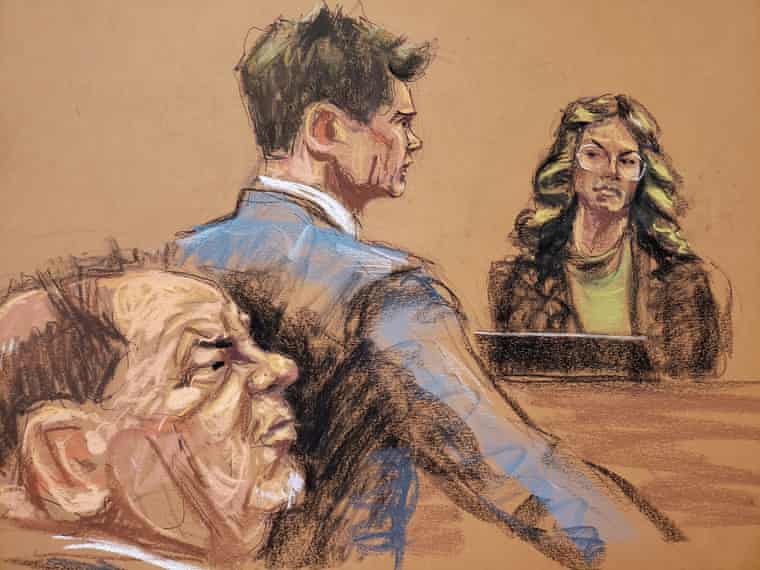
Harvey Weinstein
Harvey Weinstein trial nears final act after defence rests
Movie producer ‘loved’ closing remarks of his lawyer, who questioned motives of accusers
by Ed PilkingtonHarvey Weinstein looked cheerful at the end of five hours of closing remarks in the New York supreme court, despite facing possible life imprisonment.
As he trundled down the corridor on his walking frame, smiling broadly at reporters, he was asked what he thought of the final pitch to the jury made by his lead lawyer, Donna Rotunno. “I loved it,” he said. “I called it the Queen’s speech.”
The producer of The King’s Speech might not be feeling quite as chipper by the end of Friday. The final word in the trial – before the jury is sent out to begin deliberating next Tuesday – will be reserved for the prosecutors.
They will make their last-ditch effort to persuade the seven men and five women of the jury that Weinstein is a sexual monster who preyed on innocent victims and must be found guilty on all five counts of rape and sexual assault. He denies all the charges.
Friday’s closing prosecution statement will be presented by Joan Illuzzi-Orbon, a lifelong New York prosecutor who cuts a strikingly low-key figure beside Rotunno. But the contrast in their styles is deceptive: the two lawyers are evenly matched in terms of their aggression, determination and formidableness.

Which of them will prevail when the jury returns with its verdict, probably next week, could have far-reaching consequences in Hollywood and beyond. Though the presiding judge, James Burke, cautioned the jury not to see the case as a referendum on #MeToo, the manner in which it has been fought over in court has, perhaps inevitably, been imbued with aspects of the movement that erupted when Weinstein was first accused publicly of sexual misconduct by numerous women in October 2017.
Rotunno used her closing summary to paint a landscape. Without mentioning #MeToo by name, she warned that if it went too far, men accused of sex crimes would be deprived of the fundamental right of the presumption of innocence while women would be stripped of “common sense, autonomy and responsibility”.
She then embarked on a relentless character assassination of all six women who have testified against the film producer, accusing them of blatant lying, having false memories, changing their stories to fit the charges, and being motivated by a desire for money. The defence has amassed a wealth of emails between Weinstein and his alleged victims showing that in several cases he maintained close contact with them, even of a sexual nature.
Rotunno read out an email to him from one of the main accusers months after she was allegedly raped that read: “Miss you big guy.” “Not words you say to your rapist,” the defence lawyer told the jury.
Of the six women, only two are directly attached to the charges. The first, whom the Guardian is not naming because of a lack of clarity over her desire to be identified, is the source of two rape counts against Weinstein, alleging he attacked her in a New York hotel in 2013 and then at a Beverly Hills hotel the following year.
Miriam Haley is connected to a single count of a criminal sex act, alleging that Weinstein forced oral sex on her in his SoHo apartment in 2006. The final two counts can only apply if either or both of the accusers’ accounts lead to convictions, in which event Weinstein also faces charges of predatory sexual assault, which implies attacks on multiple women.

Four other women – the Sopranos actor Annabella Sciorra, Dawn Dunning, Tarale Wulff and Lauren Young – were brought into the trial by prosecutors as supporting evidence.
The challenge for Illuzzi-Orbon as she stands to deliver her closing statement is whether she can persuade the jury that the welter of emails and other discrepancies in the women’s testimony is only to be expected when dealing with as towering and calculating a sexual predator as she alleges Weinstein is.
She will stress the vast gulf in power between the alleged assailant and his victims, pointing to his connections to world leaders such as Bill Clinton, while the woman who accuses him of rape was raised by contrast on a dairy farm.
Whether the prosecutor will succeed in expunging the seeds of doubt that Rotunno has avidly planted in jurors’ minds about the credibility and intentions of the women now hangs in the balance. To secure convictions she must convince the jury that it is possible for victims to be brutally violated by a terrifying sex attacker and then continue to have intimate relations with him out of fear, desire for career advancement, or sheer vulnerability.
As the woman who alleges rape exclaimed at an especially intense moment in cross-examination: “I know about the emails with Harvey; I know it’s complicated and difficult, but that doesn’t change the fact that he raped me.”
Next week the jury will decide whether they agree.